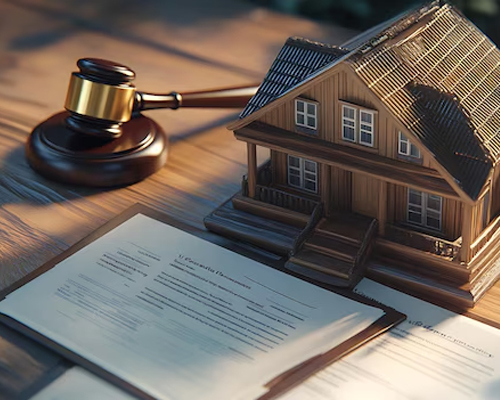
In Ontario, property owners may sometimes find themselves facing a lien on their property. A lien is a legal claim or right against a property, typically placed by a creditor due to unpaid debts or obligations. Liens can be stressful and can complicate the sale or transfer of a property. However, it is important to know that liens are not permanent and can be disputed with the proper legal approach.
If you’re dealing with a lien on your property, understanding how to dispute it is essential. In this post, we will explain the process of disputing a lien on your property in Ontario and how Real Estate Lawyers can assist in this process.
1. Understand the Type of Lien
The first step in disputing a lien is understanding the type of lien placed on your property. Common types of liens include:
- Mechanic’s liens – Typically filed by contractors, subcontractors, or suppliers who are not paid for their work or materials.
- Tax liens – Imposed by the government due to unpaid property taxes or other outstanding government obligations.
- Judgment liens – Placed by a court after a judgment has been rendered against you for an unpaid debt.
How a Real Estate Lawyer Can Help:
A Real Estate Lawyer Burlington can help you identify the type of lien on your property by reviewing relevant documents and ensuring that it has been properly filed. Understanding the nature of the lien is crucial to knowing how to dispute it effectively.
2. Review the Lien Documentation
After identifying the type of lien, the next step is to review the lien documentation. The lien should specify the amount owed and the reason for the lien. In Ontario, the lien must meet certain legal requirements to be valid. For example, a mechanic’s lien must be filed within a specific time frame after the work was completed, typically within 60 days. If the lien does not meet these legal requirements, it may be challenged.
How a Real Estate Lawyer Can Help:
A Real Estate Lawyer Oakville will carefully review the lien documents to ensure that they comply with Ontario’s Real Estate Law. If any procedural errors or legal requirements were not met when the lien was filed, your lawyer can use this information to dispute its validity.
3. Attempt to Resolve the Lien Dispute Amicably
Before pursuing formal legal action, it may be possible to resolve the lien dispute through negotiation. This could involve communicating with the creditor or lienholder to settle the outstanding debt or come to an agreement that results in the lien being lifted.
How a Real Estate Lawyer Can Help:
A Real Estate Lawyer Milton can facilitate negotiations between you and the lienholder. They can help you understand your rights, review settlement proposals, and assist in drafting any agreements that will ensure the lien is removed from your property once the dispute is resolved.
4. File a Claim in Court
If negotiations do not result in the lien being removed, the next step may be to file a claim in court to have the lien discharged. In Ontario, property owners can file an application with the court to dispute a lien. This legal process involves submitting the necessary paperwork, providing evidence to challenge the lien, and attending a court hearing.
How a Real Estate Lawyer Can Help:
A Real Estate Lawyer Hamilton will guide you through the court process, ensuring that all documentation is properly prepared and filed. They will represent you in court, argue your case, and present evidence that supports your position. Having an experienced lawyer handle your case can increase the likelihood of a favorable outcome.
5. Obtain a Lien Discharge or Release
If the court rules in your favor, they may issue an order to discharge or release the lien from your property. This will remove the claim against your property, allowing you to proceed with the sale, transfer, or refinancing of the property without the encumbrance.
How a Real Estate Lawyer Can Help:
Once the lien is successfully disputed, a Real Estate Lawyer Toronto can assist in ensuring that the court’s order is properly executed. They can help you file the necessary paperwork to remove the lien from public records, so the property is no longer encumbered by the claim.
6. Monitor for Future Liens
Even after successfully disputing a lien, it’s important to monitor your property to ensure that no new liens are placed. Lienholders may try to refile a lien or place a new claim if the underlying issue has not been fully resolved.
How a Real Estate Lawyer Can Help:
A Real Estate Lawyer Toronto can provide ongoing legal assistance to ensure that no new liens are filed against your property. They can monitor public records for any new claims and advise you on how to protect your property from future legal issues.
Conclusion
Disputing a lien on your property in Ontario can be a complex process, but with the help of an experienced Real Estate Lawyer, you can navigate the legal challenges effectively. Whether the lien is related to unpaid debts, taxes, or construction work, understanding how to dispute it is crucial to protecting your property and maintaining your financial interests.
If you’re facing a lien on your property in Burlington, Oakville, Milton, Hamilton, or Toronto, consulting with a knowledgeable Real Estate Lawyer can provide the legal expertise needed to resolve the dispute and safeguard your property rights.





Leave a Reply